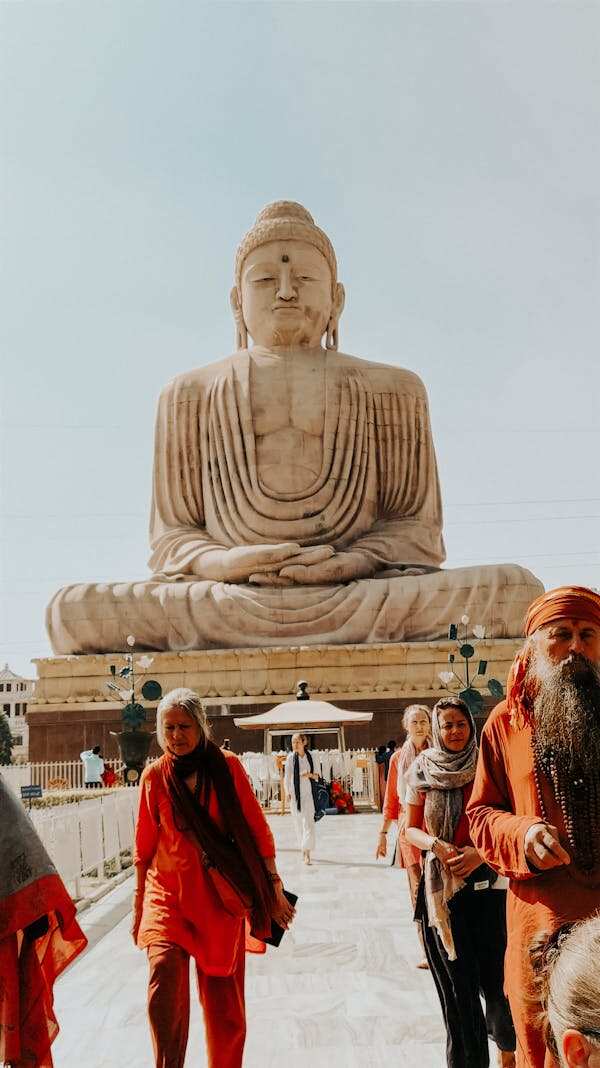Despite Prime Minister Narendra Modi himself leading a heightened diplomacy, India’s bid to secure membership to the 48-nation Nuclear Suppliers Group (NSG) hit a dead end on Friday. Atleast 16 countries, led by China, raked up procedural issues as well as India not signing Non Proliferation Treaty (NPT) to scuttle India’s chances to the elite nuclear club.
An upset ministry of external affairs (MEA) in a clear reference to Beijing, said one country persistently created procedural “hurdles” during the two-day discussions at Seoul, where the NSG concluded its plenary meeting.
While the Opposition bayed for the blood of the PM, terming the developments in Seoul as an “embarrassment” to India, many senior diplomats argued that India’s attempt to seek a high-table at the nuclear club was worth trying. Former foreign secretary Shyam Saran, who was instrumental in getting a waiver from the NSG in 2008, said there was nothing wrong in making a bid. India should no longer fear foreign policy failure.
“If India sees an opportunity, New Delhi should be prepared to seize it even if there are risks involved,” he said. Many others also believes that diplomatic blitzkrieg for the NSG was also to test waters for making bid for more higher table, like that of a permanent seat at the UN Security Council.
Strategic expert and director of Society for Policies Study, Uday Bhaskar said while the outcome was disappointing, it was not surprising.
The NSG works through consensus with even a single country having capacity to halt a decision. Surprise for Indian diplomats was reservations expressed by Brazil and Switzerland. Both of them had earlier committed to support India’s bid. Fresh from Iranian nuclear crisis, the countries forcefully argued to making a case for countries to enter into the NPT, before being allowed to do nuclear trade. They also apprehended, that an exception granted to India would be exploited by other non-NPT countries as well. Pakistan’s application for the membership is also pending before the NSG.
The criticism of India was not only that it had not signed the NPT, but also that it had not fulfilled the commitments it made while getting NSG waiver in 2008. Diplomatic sources here said that some countries raised the issue of India’s progress towards CTBT and also separation of its civilian and military nuclear reactors and reports about the safety of nuclear programme.
The MEA statement, while blaming one particular country, said signing of the NPT was not necessary as per the NSG rules. But officials here say, there was no problem in signing the NPT if India is formally declared sixth legitimate nuclear power.
At the end meeting, the NSG countries in a statement declared “firm support” for “full, complete and effective” implementation of the NPT as the cornerstone of the international non-proliferation regime. The wording was enough to carry a message that no exception will be made in the case of India. It, however, said the grouping will continue to have discussions on participation of countries which have not signed the NPT.
MEA spokesperson Vikas Swarup said despite procedural hurdles persistently raised by ‘one country’, a three-hour long discussion took place on Thursday night on the issue of future participation in the NSG, in which an overwhelming number of those who took the floor supported India’s membership and appraised India’s application positively.
“We thank each and every one of them. It is also our understanding that the broad sentiment was to take this matter forward,” he said. He added that an early positive decision by the NSG would have allowed India to move forward on the Paris Climate Change Agreement.
Chinese negotiator, Wang Qun, who is director general of China’s Department of Arms Control, told reporters that there was no consensus on the NSG membership of non-NPT countries like India. He insisted that for a country to be a member of NSG, signing of the NPT “is a must”. This rule has not been set by China but by the international community, he added.
Chinese stand shows that Prime Minister Modi’s meeting with President Xi Jinping at Tashkent had failed to yield results.
Stating that the PM needs to realise that diplomacy needs “depth and seriousness and not public tamasha,” Congress senior spokesman Anand Sharma said, “We do not know why India showed its desperation and allowed the country to be equated with Pakistan on the issue.”
![submenu-img]() Meet Gautam Adani’s ‘right hand’, used to work as teacher, he’s now Rs 1600000 crore…
Meet Gautam Adani’s ‘right hand’, used to work as teacher, he’s now Rs 1600000 crore…![submenu-img]() Meet actor who worked with Amitabh Bachchan, Aishwarya Rai, entered films because of a bus conductor, is now India's..
Meet actor who worked with Amitabh Bachchan, Aishwarya Rai, entered films because of a bus conductor, is now India's..![submenu-img]() Meet Bollywood star, who was a tourist guide, married 4 times, went bankrupt, his son died by suicide, then...
Meet Bollywood star, who was a tourist guide, married 4 times, went bankrupt, his son died by suicide, then...![submenu-img]() This actor made Sharmila Tagore forget her lines, once did film for Rs 100, could never be a superstar because..
This actor made Sharmila Tagore forget her lines, once did film for Rs 100, could never be a superstar because..![submenu-img]() Volkswagen Taigun GT Line, Taigun GT Plus launched in India, price starts at Rs 14.08 lakh
Volkswagen Taigun GT Line, Taigun GT Plus launched in India, price starts at Rs 14.08 lakh![submenu-img]() DNA Verified: Is CAA an anti-Muslim law? Centre terms news report as 'misleading'
DNA Verified: Is CAA an anti-Muslim law? Centre terms news report as 'misleading'![submenu-img]() DNA Verified: Lok Sabha Elections 2024 to be held on April 19? Know truth behind viral message
DNA Verified: Lok Sabha Elections 2024 to be held on April 19? Know truth behind viral message![submenu-img]() DNA Verified: Modi govt giving students free laptops under 'One Student One Laptop' scheme? Know truth here
DNA Verified: Modi govt giving students free laptops under 'One Student One Laptop' scheme? Know truth here![submenu-img]() DNA Verified: Shah Rukh Khan denies reports of his role in release of India's naval officers from Qatar
DNA Verified: Shah Rukh Khan denies reports of his role in release of India's naval officers from Qatar![submenu-img]() DNA Verified: Is govt providing Rs 1.6 lakh benefit to girls under PM Ladli Laxmi Yojana? Know truth
DNA Verified: Is govt providing Rs 1.6 lakh benefit to girls under PM Ladli Laxmi Yojana? Know truth![submenu-img]() Remember Abhishek Sharma? Hrithik Roshan's brother from Kaho Naa Pyaar Hai has become TV star, is married to..
Remember Abhishek Sharma? Hrithik Roshan's brother from Kaho Naa Pyaar Hai has become TV star, is married to..![submenu-img]() Remember Ali Haji? Aamir Khan, Kajol's son in Fanaa, who is now director, writer; here's how charming he looks now
Remember Ali Haji? Aamir Khan, Kajol's son in Fanaa, who is now director, writer; here's how charming he looks now![submenu-img]() Remember Sana Saeed? SRK's daughter in Kuch Kuch Hota Hai, here's how she looks after 26 years, she's dating..
Remember Sana Saeed? SRK's daughter in Kuch Kuch Hota Hai, here's how she looks after 26 years, she's dating..![submenu-img]() In pics: Rajinikanth, Kamal Haasan, Mani Ratnam, Suriya attend S Shankar's daughter Aishwarya's star-studded wedding
In pics: Rajinikanth, Kamal Haasan, Mani Ratnam, Suriya attend S Shankar's daughter Aishwarya's star-studded wedding![submenu-img]() In pics: Sanya Malhotra attends opening of school for neurodivergent individuals to mark World Autism Month
In pics: Sanya Malhotra attends opening of school for neurodivergent individuals to mark World Autism Month![submenu-img]() DNA Explainer: What is cloud seeding which is blamed for wreaking havoc in Dubai?
DNA Explainer: What is cloud seeding which is blamed for wreaking havoc in Dubai?![submenu-img]() DNA Explainer: What is Israel's Arrow-3 defence system used to intercept Iran's missile attack?
DNA Explainer: What is Israel's Arrow-3 defence system used to intercept Iran's missile attack?![submenu-img]() DNA Explainer: How Iranian projectiles failed to breach iron-clad Israeli air defence
DNA Explainer: How Iranian projectiles failed to breach iron-clad Israeli air defence![submenu-img]() DNA Explainer: What is India's stand amid Iran-Israel conflict?
DNA Explainer: What is India's stand amid Iran-Israel conflict?![submenu-img]() DNA Explainer: Why Iran attacked Israel with hundreds of drones, missiles
DNA Explainer: Why Iran attacked Israel with hundreds of drones, missiles![submenu-img]() Meet actor who worked with Amitabh Bachchan, Aishwarya Rai, entered films because of a bus conductor, is now India's..
Meet actor who worked with Amitabh Bachchan, Aishwarya Rai, entered films because of a bus conductor, is now India's..![submenu-img]() Meet Bollywood star, who was a tourist guide, married 4 times, went bankrupt, his son died by suicide, then...
Meet Bollywood star, who was a tourist guide, married 4 times, went bankrupt, his son died by suicide, then...![submenu-img]() This actor made Sharmila Tagore forget her lines, once did film for Rs 100, could never be a superstar because..
This actor made Sharmila Tagore forget her lines, once did film for Rs 100, could never be a superstar because..![submenu-img]() Mumtaz urges to lift ban on Pakistani artistes in Bollywood: ‘Woh log hum logon se...'
Mumtaz urges to lift ban on Pakistani artistes in Bollywood: ‘Woh log hum logon se...'![submenu-img]() Not Kiara Advani, but this actress was first choice opposite Shahid Kapoor in Kabir Singh, she rejected because...
Not Kiara Advani, but this actress was first choice opposite Shahid Kapoor in Kabir Singh, she rejected because...![submenu-img]() IPL 2024: Yashasvi Jaiswal, Sandeep Sharma guide Rajasthan Royals to 9-wicket win over Mumbai Indians
IPL 2024: Yashasvi Jaiswal, Sandeep Sharma guide Rajasthan Royals to 9-wicket win over Mumbai Indians![submenu-img]() IPL 2024: How can RCB still qualify for playoffs after 1-run loss against KKR?
IPL 2024: How can RCB still qualify for playoffs after 1-run loss against KKR?![submenu-img]() CSK vs LSG, IPL 2024: Predicted playing XI, live streaming details, weather and pitch report
CSK vs LSG, IPL 2024: Predicted playing XI, live streaming details, weather and pitch report![submenu-img]() RR vs MI: Yuzvendra Chahal scripts history, becomes first bowler to achieve this massive milestone in IPL
RR vs MI: Yuzvendra Chahal scripts history, becomes first bowler to achieve this massive milestone in IPL![submenu-img]() 'Yeh toh second tier ki bhi team nhi': Ramiz Raja slams Babar Azam and co. after 3rd T20I loss vs New Zealand
'Yeh toh second tier ki bhi team nhi': Ramiz Raja slams Babar Azam and co. after 3rd T20I loss vs New Zealand![submenu-img]() Mukesh Ambani's son Anant Ambani likely to get married to Radhika Merchant in July at…
Mukesh Ambani's son Anant Ambani likely to get married to Radhika Merchant in July at…![submenu-img]() India's most expensive wedding costs more than weddings of Isha Ambani, Akash Ambani, total money spent was...
India's most expensive wedding costs more than weddings of Isha Ambani, Akash Ambani, total money spent was...![submenu-img]() Meet Indian genius who lost his father at 12, studied at Cambridge, took Rs 1 salary, he is called 'architect of...'
Meet Indian genius who lost his father at 12, studied at Cambridge, took Rs 1 salary, he is called 'architect of...'![submenu-img]() Earth Day 2024: Google Doodle features aerial photos of planet's natural beauty, biodiversity
Earth Day 2024: Google Doodle features aerial photos of planet's natural beauty, biodiversity![submenu-img]() Meet India's first billionaire, much richer than Mukesh Ambani, Adani, Ratan Tata, but was called miser due to...
Meet India's first billionaire, much richer than Mukesh Ambani, Adani, Ratan Tata, but was called miser due to...






































)




)
)
)
)
)
)